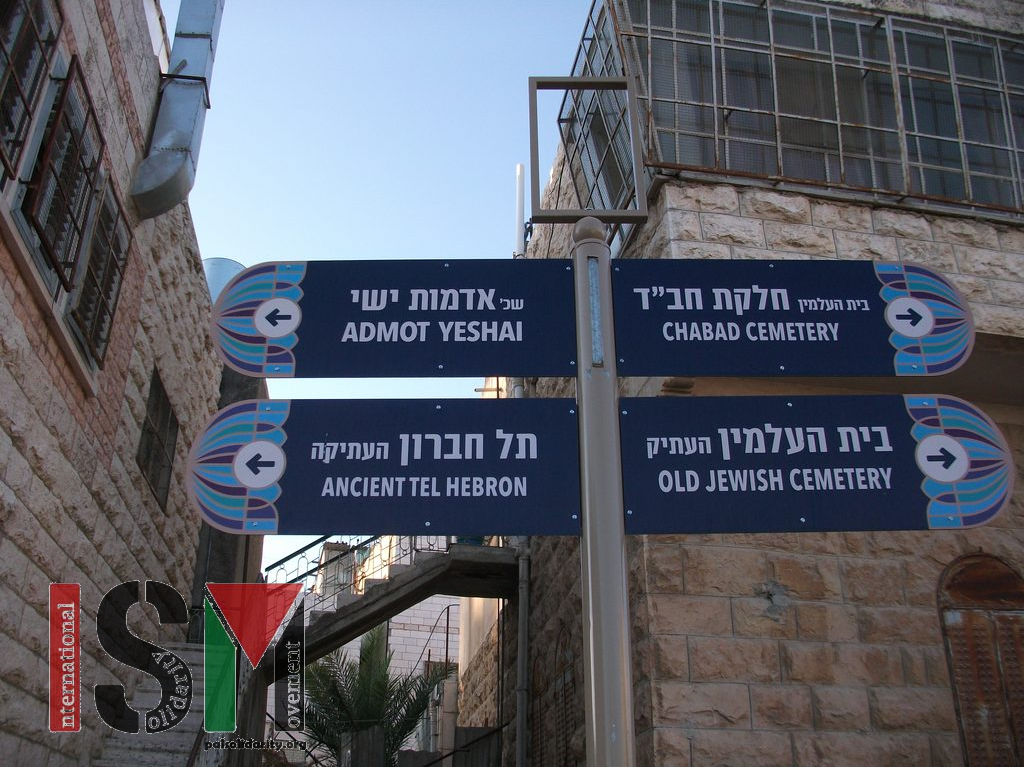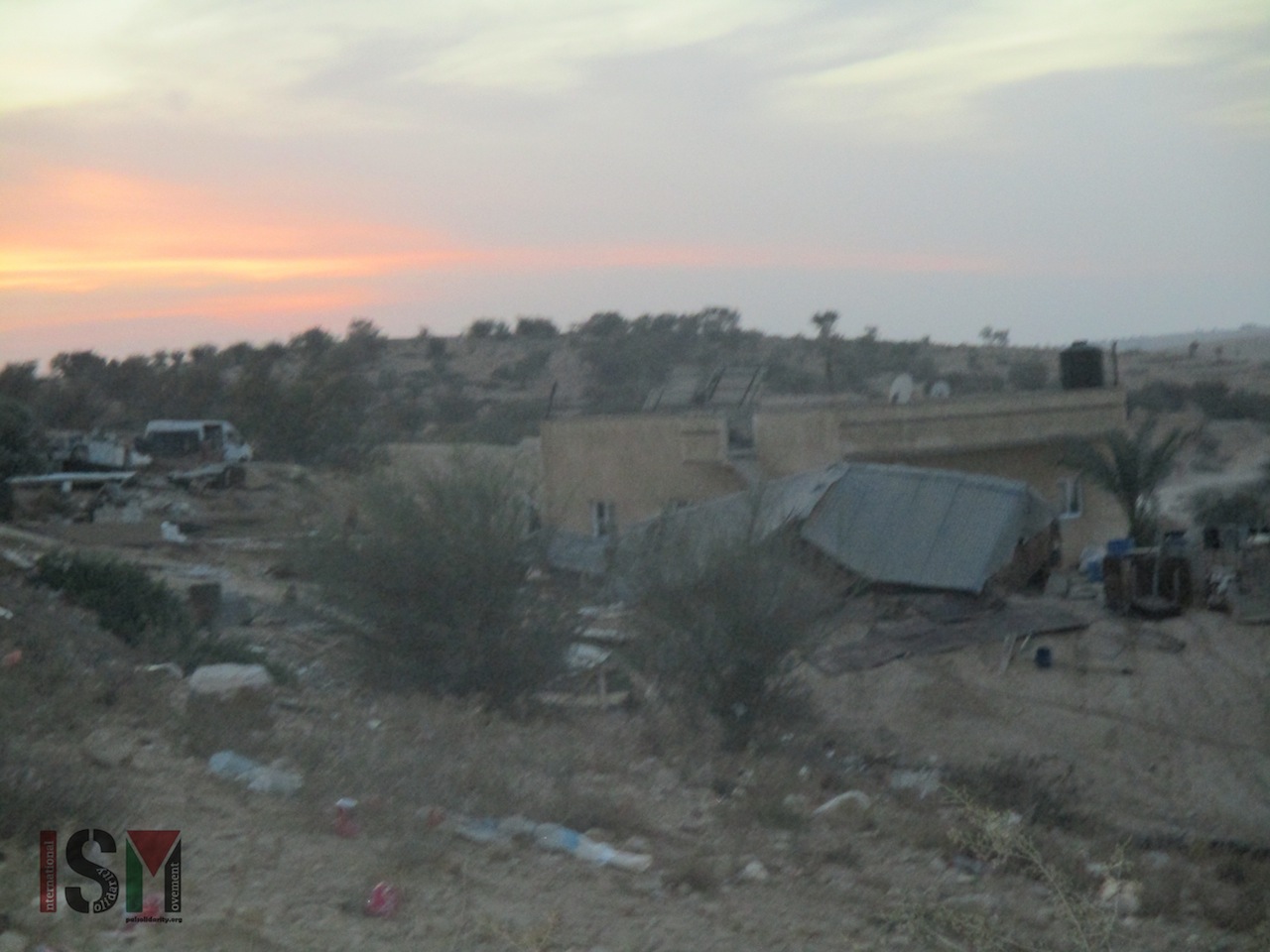-
Join now: ISM-Training in England!
6th December 2016 | International Solidarity Movement, England support group | England ISM-England is offering a training for interested ISM-volunteers in Sheffield on 18th and 19th of February ! If you’re interested in joining the team on the ground in Palestine, make sure to reserve the date and join the training. Any volunteer is required […]
-
New checkpoints, access control-buildings and street-signs in the historical center of Hebron
6th December 2016 | International Solidarity Movement, al-Khalil team | Hebron, occupied Palestine As for colonial Israel, nothing happens without a reason. Periods of extreme violence are followed by relative calm periods with more intense colonial construction activities and preparations for the next facts on the ground. Palestinian daily life is inhumanly restricted by the […]
-
Umm al-Hiran, a village off the maps
2nd December 2016 | International Solidarity Movement, Hebron/al-Khalil team | occupied Palestine Umm al-Hiran is a Bedouin village in the Negev desert in southern Israel. The village is surrounded by open landscape, the only structures in sight line. About a fifteen minute drive away is a small city called Hura, where the children from the village […]
Action Alert An Nabi Saleh Apartheid Wall Arrests BDS Bethlehem Bil'in Cast Lead Demonstration Denial of Entry Ethnic Cleansing Farmers Gaza Global Actions Hebron House Demolition International law Israeli Army Jerusalem Live Ammunition Nablus Ni'lin Prisoner Ramallah Rubber-coated steel bullets Settlement Settlers Settler violence Tear-Gas Canister Video



